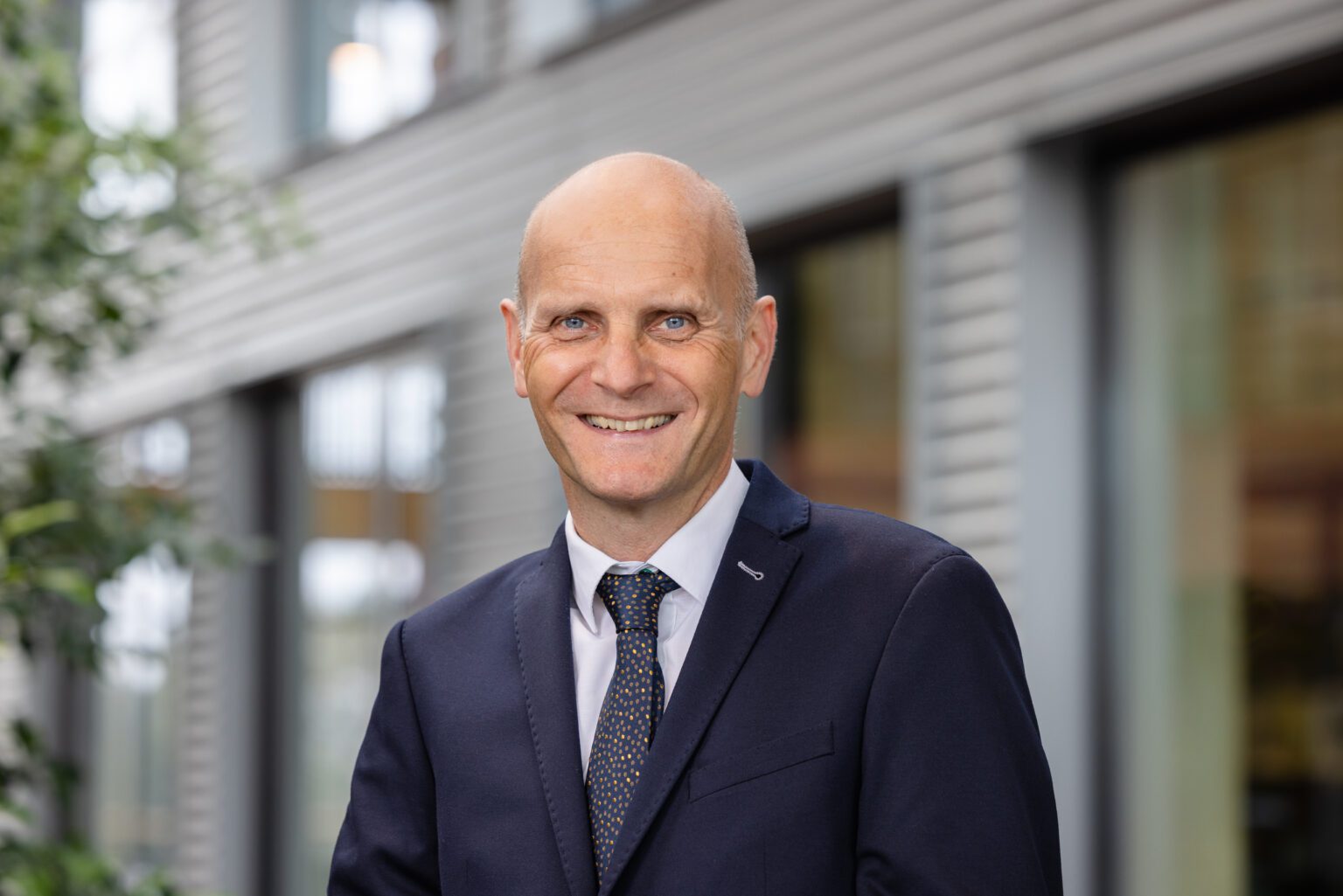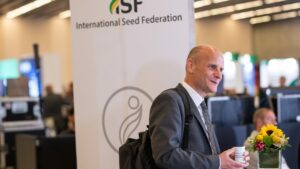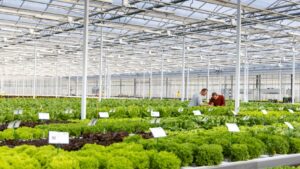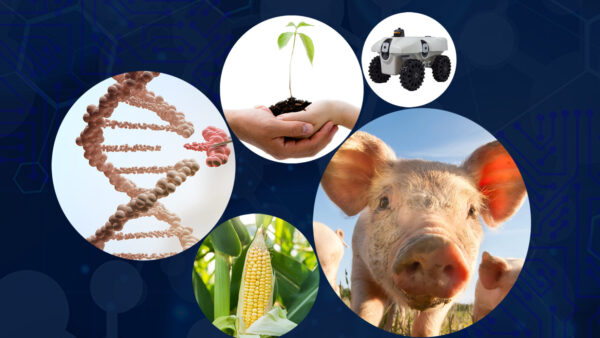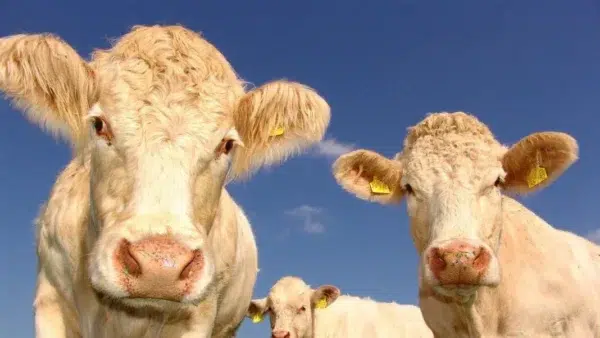Marco van Leeuwen found wonder in the seed sector. Now, he strives to share that knowledge across the globe.
In the seed industry, it’s not unusual to hear about someone who’s been at a company for 20 years to 30 years — someone who’s maintained their job, is passionate about what they do and loves where they work. But, among those success stories, rarely do you hear about a person starting as an intern, working hard and rising through the ranks to the point that they’ve become the managing director of that same company.
It’s not a story you hear often, but that’s the reality of Marco van Leeuwen. Though, it wasn’t a clear-cut path from the beginning.
“There wasn’t really a big, ultimate plan,” van Leeuwen, managing director of Rijk Zwaan and president of ISF, says. “There was the connect with horticulture and my passion for it — but as for the rest, it was a lot of coincidence.”
Born and raised in the world of horticulture, surrounded by greenhouses and the horticulture industry, it seemed logical for van Leeuwen to follow horticulture into his studies at school. Focused on agriculture management specifically, he needed an internship to complete his thesis — it was then that the world of Rijk Zwaan opened to him.
“I never made the connection,” he said, noting that through his research and studies, he never realized how nearby Rijk Zwaan was to him. “I got this internship, and the whole beautiful world of seeds unfolded in front of me — and it felt right. Rijk Zwaan was my first employer and is probably going to be my last.”
For van Leeuwen, the seed sector — and more specifically, the vegetable seed sector — caught his attention almost immediately due to the multi-dimensional aspect.
“Imagine a tomato seed, which is really tiny — you have to make sure you get the right result in terms of quality because it’s a living thing that people put in the soil,” he says, adding that plant breeding isn’t the only thing that you need to consider when creating a new tomato product. “First, there’s research, then development breeding, seed production, the operational aspects, seed cleaning and finally, all the downstream activities. It was fascinating — it also honestly took me a year or two to really understand how all the dots were connected.”
But, it wasn’t just the complexity and beauty of the seed sector that made him want to stay — it was the company culture of Rijk Zwaan as well.
In thinking about Rijk Zwaan and its culture, van Leeuwen says the company is a rather flat organization — because of that, they consider themselves a group of like-minded entrepreneurs that work for and towards the same purpose. It’s a comfortable and welcoming place to work.
“We give guidance on what we want to achieve, but then we put a lot of trust in people that we recruited — that gives a lot of freedom for people to operate,” he says. “That’s what I discovered when I started working here, and it’s what made me want to stay.”
Getting Involved Internationally
Though Rijk Zwaan opened new doors to the seed sector for van Leeuwen, after getting to experience so many different areas within the company, a new door opened for him: collaboration.
“We always apply this idea that you need to collaborate if you want to maintain a healthy seed sector,” van Leeuwen says. “This is also why we foster our colleagues worldwide and we encourage them to participate in national associations as well as associations such as the International Seed Federation (ISF).”
And, as he progressed through his career, van Leeuwen learned that he enjoyed that collaborative aspect to the job, whether it was in-house or on the association levels.
“I like to build bridges,” he says. “I like to connect to people to get things done, and if you combine that with the fact that working in the seed sector is a lot of fun, it was also logical for me to get involved internationally.”
Van Leeuwen started his journey by getting involved with Plantum, the national seed association in the Netherlands, and joining Euroseeds. From there, as he got more involved with the fight against illegal seed practices, amongst others as chair of the Anti Infringement Bureau, and developed a passion for intellectual property protection, he was offered a role on one of the ISF committees — and the rest, he says, is history. Since then, he went on to become president of ISF in the summer of 2022.
“We agreed that some sections of our lives have no plans, and I didn’t have a plan to become ISF president,” van Leeuwen says, adding that after participating on the vegetables and ornamentals board, he joined the board of directors of ISF in 2017. “When I was asked if I would be interested in the cycle of becoming second vice president to first vice president to president, I took some time to think about it. It’s a great honor and a great responsibility, and I wanted to make sure I’d be able to deliver if I obtained the position.”
It took a lot of thought from different aspects of his life. Not only did he consult his colleagues at Rijk Zwaan, but he also looked to home. As the father of three children and husband to a wonderful wife, ensuring that he was able to be part of his work team, the ISF team and have plenty of time for family time was important.
Fortunately, the consensus seemed to be drawn in a resounding yes.
But, though the presidency wasn’t part of a “grand plan,” van Leeuwen says he believes that he has a passion for getting things done — and obviously, that wasn’t going unnoticed. Now, that drive to get things done is evident during his presidency.
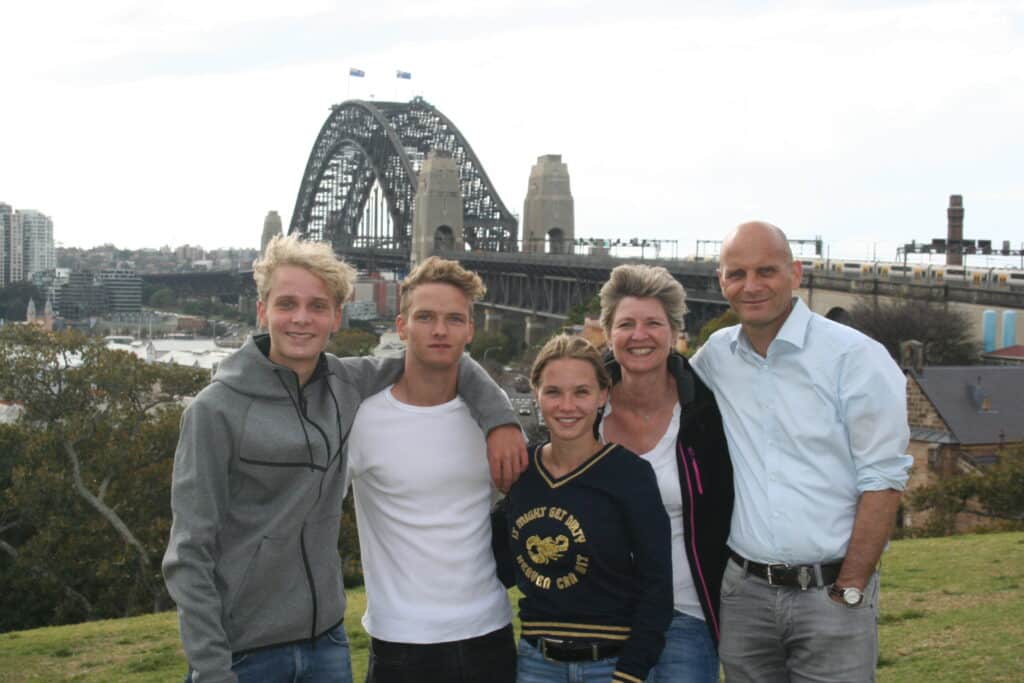
With the ISF board of directors and secretariat to help, the first objective van Leeuwen notes that he’s been working on is achieving the Key Strategic Objectives (KSO) of ISF.
In particular, van Leeuwen says two aspects of the KSOs call for urgent attention: the ability to move seed globally and ending hunger. Though the task is quite large, ISF is looking into new ways to continue regulatory discussions around the subject and is taking on new projects — such as the Seed Resilience partnership with Fair Planet — to propel those goals further.
A second passion he had during his presidency is bettering the coexistence between plant breeders’ rights and farmers’ rights.
“There’s always this big debate between plant breeders’ rights and farmers’ rights,” he says. “What we want to try and do is improve the narrative and better explain that these types of rights can easily coexist in countries, especially if you look purely at the interest of farmers and societies.”
Finally, van Leeuwen hopes to involve and mobilize business leaders in a better way and to get the next generation of seed professionals on board.
Though there are a lot of technical specialists involved in organizations like Euroseeds and ISF, van Leeuwen says there’s more that business leaders can be doing, especially when it comes to engaging and fostering a dialogue with society at large.
“We as a seed sector are at the start of the food chain, but we cannot work alone,” van Leeuwen says. “We need to get that dialogue going. We need to speak with everybody, and we need to be challenged as well.”
Without that feedback and support, it’s difficult for the seed sector to be able to work and better engage with everyone along the seed value chain.
“We’re in a paradigm shift from the past — now, we are seeking more engagement with society at large and its international organizations,” he says.
Make sure to stay tuned for part two of this piece where van Leeuwen tackles changes he sees ahead of the seed sector and solutions to combat them.


